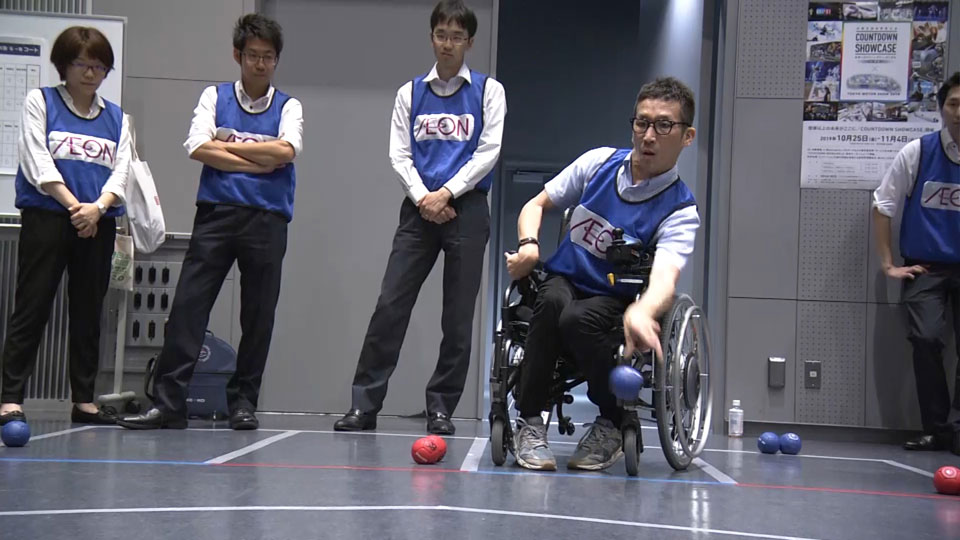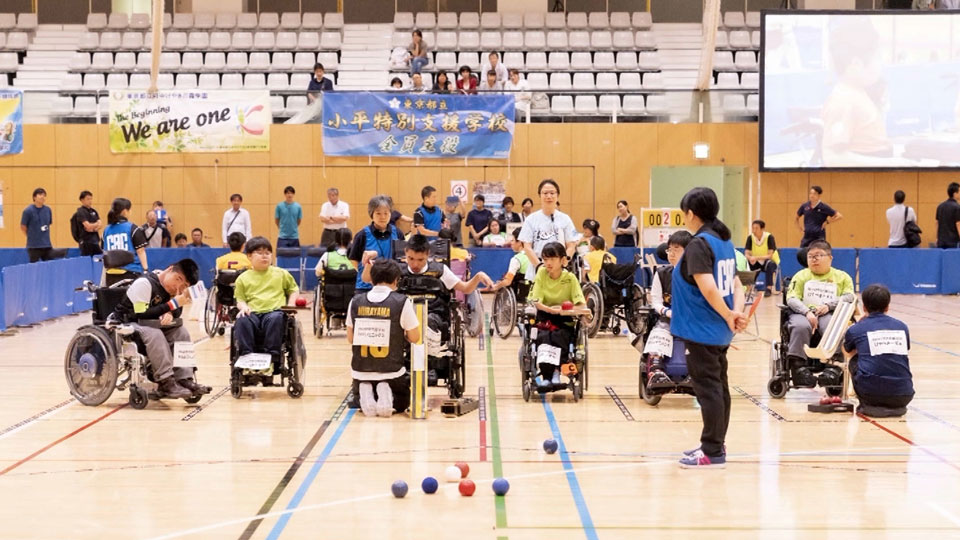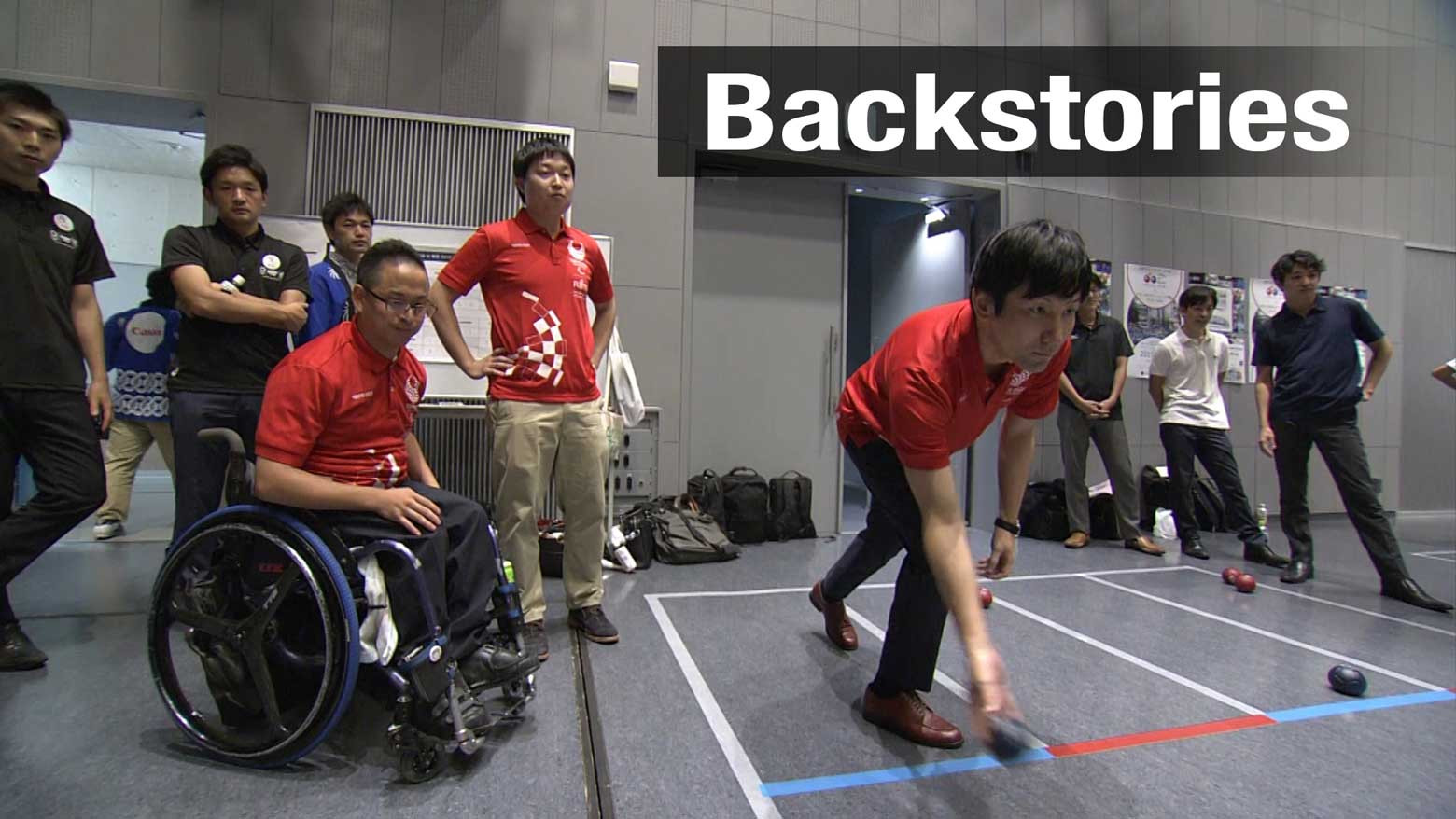
It's a Thursday night in September and employees of retail giant Aeon have gathered in the lobby of their company headquarters.
They've come to play boccia, the sport created for people with cerebral palsy that's become a surprise hit with Japanese office workers. A lot like curling or crown green bowling, boccia involves players trying to get their team's balls closest to a jack. It's a sport that demands accuracy and strategy.
Boccia got a boost in Japan when the national team won silver at the Rio de Janeiro Paralympics. And because it's easy to learn, cheap to begin, but challenging to perfect, it proved popular with people of all ages and abilities.
In the Aeon lobby, workers are competing for the chance to play in an inter-company tournament the following month. PR manager Daisuke Yokota says they're taking it all quite seriously, practicing regularly and working on tactics.

The following month, Team Aeon and about 120 rivals go to battle in the "Office de Boccia" tournament. The event is so large it fills three floors of a massive commercial complex in Tokyo's Shibuya district.
Aeon captain Susumu Neo says they are taking the tournament seriously. "We just had a 3-hour meeting in the car to plot strategies," he says. Teammate Yuji Yamanaka says he spent six hours the previous night watching boccia games on YouTube to study the techniques of the champions.
Boccia builds up teamwork and makes the workplace more lively

Neo and his team squeak through the opening group stages on goal difference, but they fall in the next round to the eventual runners-up. Neo is sanguine, though, saying the tournament was about much more than just the result.
"Boccia has improved our communication and team spirit at work," says Neo. "Other colleagues have become interested too, and came to cheer us on. That kind of thing makes the workplace livelier and more united."
The sport fosters a spirit of inclusivity
IT firm CAC Holdings was ahead of the curve on boccia. They've been promoting it since before the spotlight of the Rio games.
System engineer Mayumi Yoshino has been a member of the company's boccia club for four years. She's represented them twice at the Office de Boccia tournament.
Watch Video: 03:41
She says the sport gives her a chance to interact with a diverse range of people, which is much needed after spending most of the day face-to-face with a computer screen.
CAC Holdings takes the sport so seriously that it hired one of the country's top boccia players. In Japan, companies sometimes hire athletes as a form of sponsorship. Some of the country's most famous rugby players, ice skaters and tennis players are technically corporate employees.
Shun Sato is being tipped to play in next year's Paralympics. He often teaches technique and tactics to the company's boccia players. System engineer Yoshino says he also teaches them what it's like to need a wheelchair, and playing alongside him has changed her perception of people with disabilities.

"I've realized there are no real barriers between us and I treat him just like anybody else," she says. "We play together and share the same sport as teammates."
Sato says he already views the CAC team as a second family. "They always come to my games and cheer me on," he says.
Now CAC Holdings is using boccia to give back to the community. At the end of September, the company organized a boccia tournament in Tokyo for children with disabilities. Dozens of employees volunteered to help run it.

Tournament organizer Iori Sakai says it was such a success that they want to take it on the road and hold similar events in rural areas. Yoshino says she's determined to spread the word about her favorite sport and ensure it stays popular after its moment in the spotlight next summer.
"I think the Boccia boom will reach a fever pitch by the time of the Paralympics," she says. "But I want to keep playing and supporting this sport forever."

